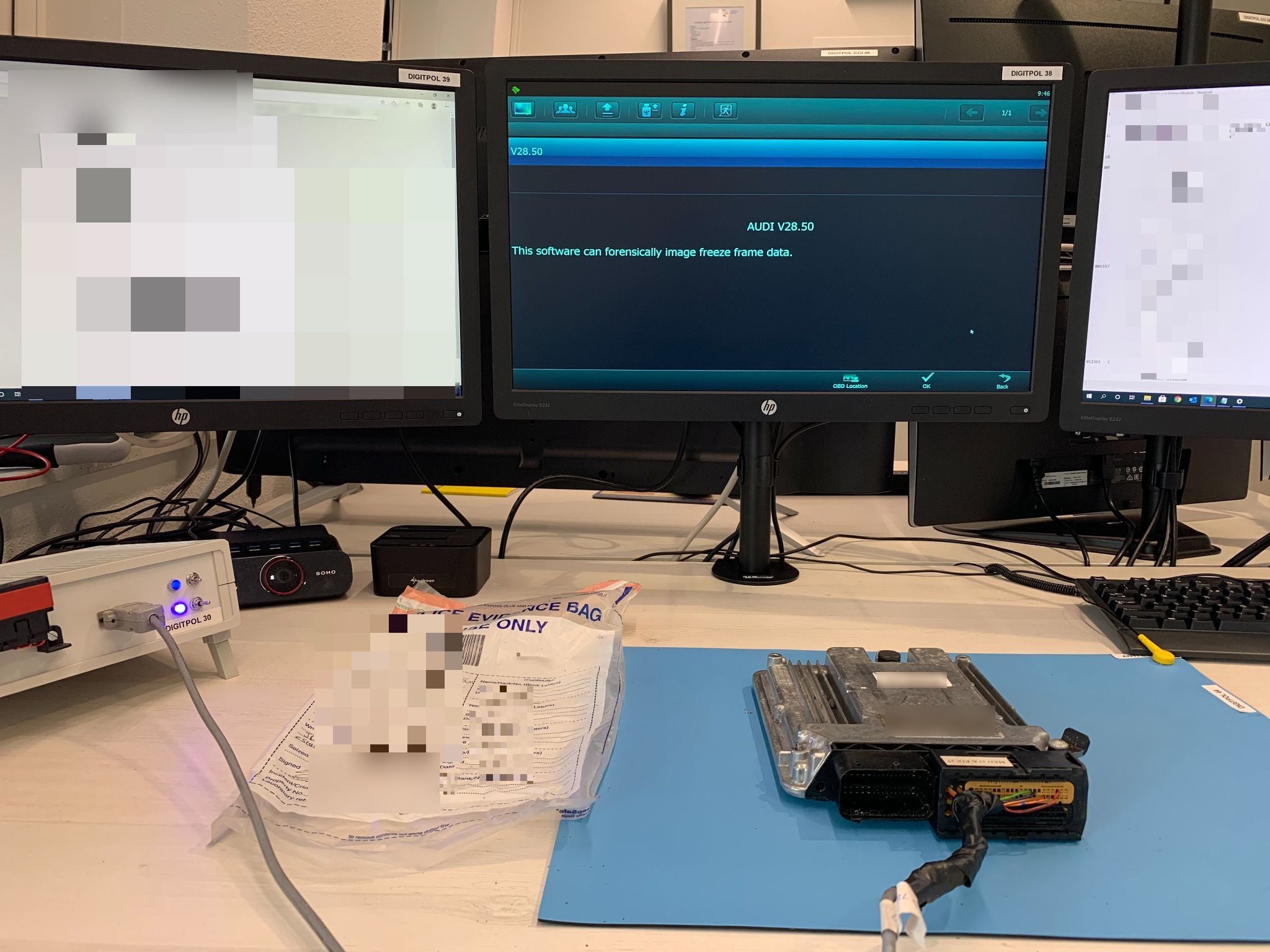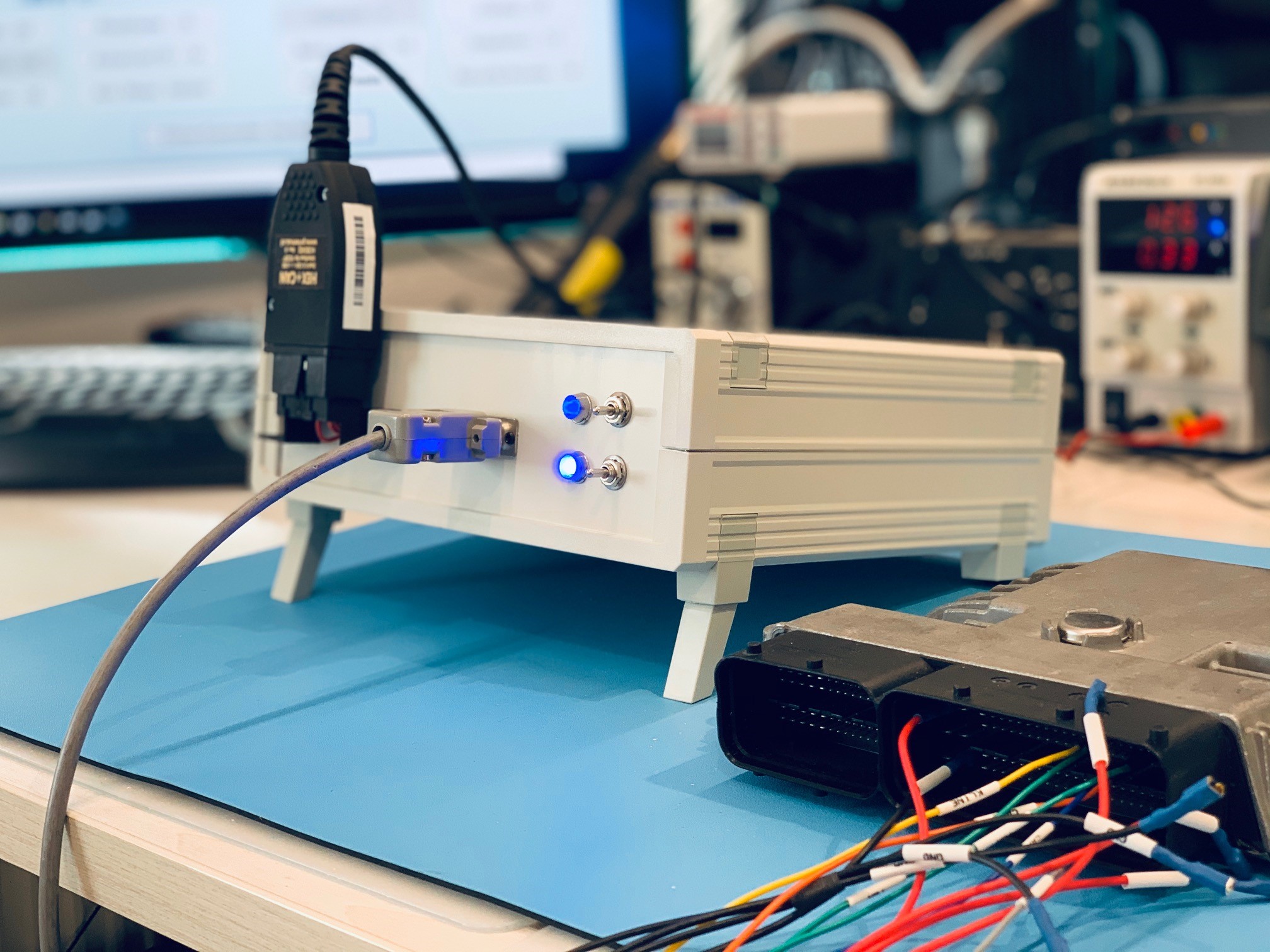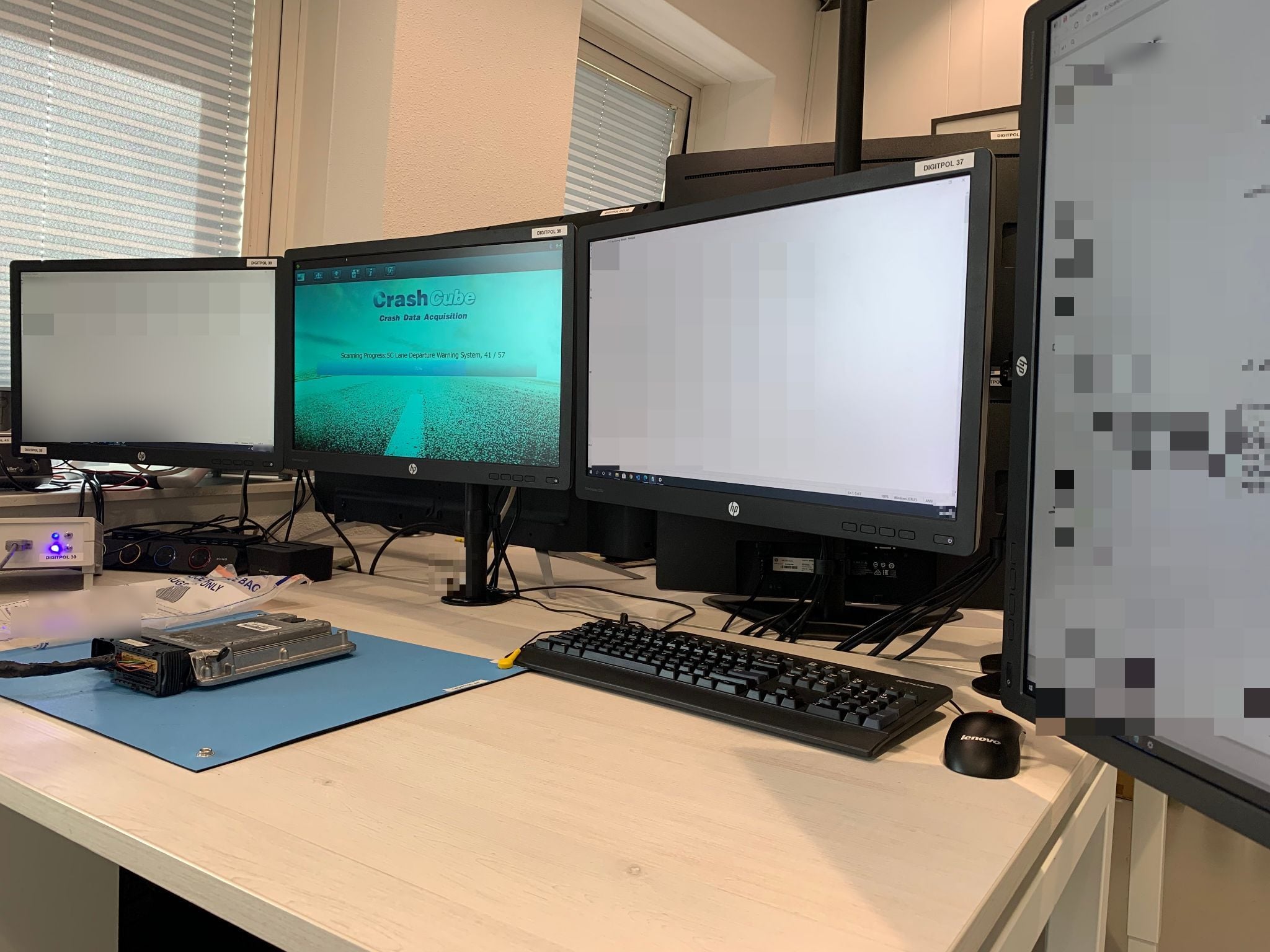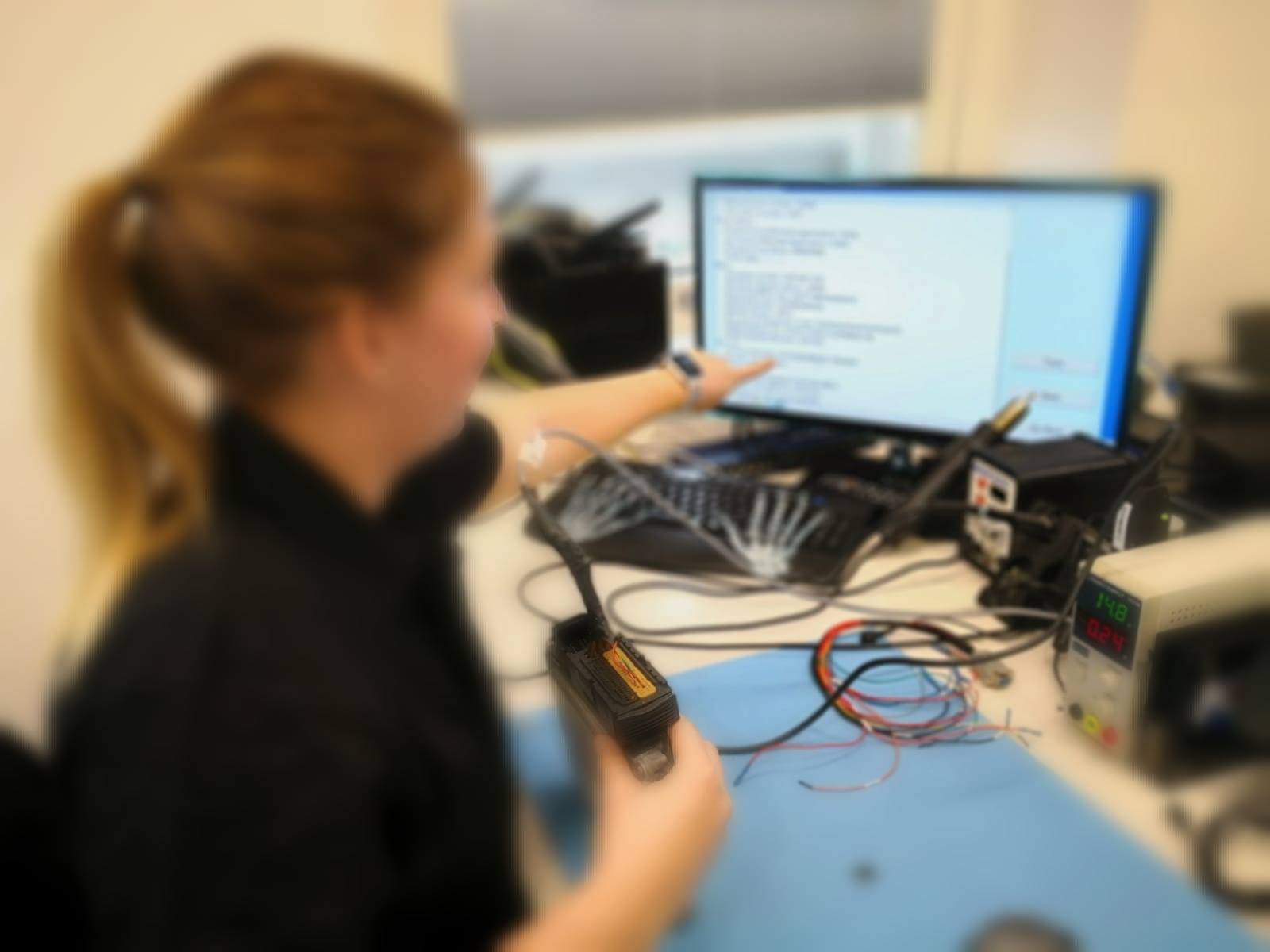Engine Control Unit (ECU) Forensics
Engine Control Unit (ECU) forensics is an important branch of vehicle forensics that focuses on the recovery of digital evidence or data from automotive modules, including those allocated to the drivetrain CAN BUS network, such as Airbag Modules, Transmission Modules, SRS units, Command or Head-Up Units, and others. ECU forensics involves the extraction and analysis of data from these modules, including crash data, freeze frames, VIN, serial numbers, mapping, emissions, and engine control data, among other things. This data can provide valuable information related to motor vehicle accidents, crimes committed in or around a vehicle, or other incidents involving a vehicle.
Recovery of Deleted Digital VIN, KM data, Crash Data and Mapping.
We specialize in recovery of deleted KM, VIN and Serial numbers from all types of coded ECU's. ABS. Airbag modules, Instrument clusters (dashboards), Keys and Navigation units.
- KM reading
- VIN & Serial numbers
- Mapping Parameters
- History and faults with times and KM
- Crash data, events and historic faults.
Vehicle ECU forensic identification is the process of identifying and extracting digital evidence from the engine control unit (ECU) of a vehicle for forensic analysis. The ECU is a computerized system that manages various functions of a vehicle's engine, such as fuel injection, ignition timing, and emissions control. When investigating incidents involving a vehicle, such as a motor vehicle accident or a crime committed in or around a vehicle, digital evidence from the ECU may be relevant to the investigation. This evidence can include data such as speed, acceleration, braking, and other vehicle performance data. To conduct a forensic analysis of the ECU, specialized tools and techniques are used to extract data from the ECU in a forensically sound manner. The extracted data is then analyzed to identify potential evidence relevant to the investigation.
Digitpol provides vehicle ECU forensic identification services, using specialized tools and techniques to extract digital evidence from the ECU of a vehicle. The extracted data is then analyzed by their digital forensic investigators, who have the necessary expertise to identify and present potential evidence in a clear and concise manner. Overall, vehicle ECU forensic identification is an important aspect of vehicle forensics that can provide valuable digital evidence in the investigation of incidents involving vehicles. Digitpol's vehicle ECU forensic identification services can assist law enforcement agencies, insurance companies, and other organizations in uncovering potential evidence and supporting their investigations.




